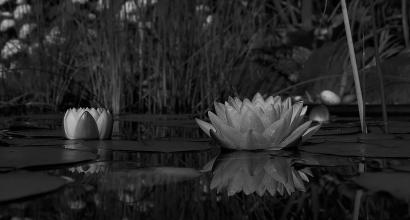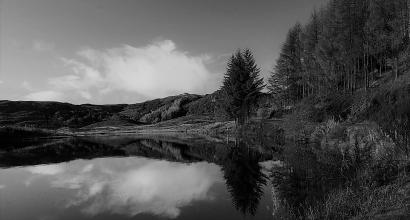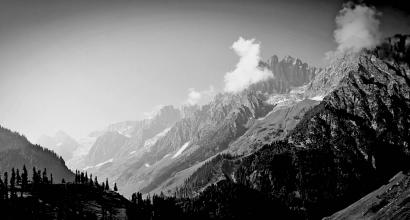Naranappa’s household account
Three to four years had passed by then. During this period there was no occasion for Naranappa and Seshagiriappa to meet. Thereafter in Byrakur cholera epidemic cropped up. One among the firsts to succumb to it was Naranappa’s elder son Venkataramanaiah. He was about fifteen or sixteen years of age then. He was married, but his wife had not yet entered the family. Venkataramanaiah was well known to be capable and of good character. His handwriting and conduct were good. Having lost such a son, Naranappa also followed his son the next day.
Sakamma was Naranappa’s wife. She was left with another son Thimmappa of five or six years and a daughter Alamelamma of four years. Patel Appodu conveyed these tragic happenings to Kolar lawyer Seshagiriappa’s brother Ramanna in Mulbagal, through his servant. Immediately after coming to know of this, Ramanna immediately proceeded to Byrakur and brought the devastated family to his house. Ramanna thought it to be a temporary arrangement till the ceremonies of the departed were completed and thereafter Sakamma and her family could be sent to Gunjur or to her parents’ place at Sarjapur.
Circumstances in Mulbagal
Let us see the circumstances in the Mulabagilu family. Shekdar Gundappa established the family at Mulbagal. Gundappa had expired and a few years before that, his wife Kamakshamma also had expired. Among their three children, lawyer Seshagiriappa was the first one. For his avocation he had to primarily reside in Kolar. He was widowed at a young age itself and his only son was in the care of his maternal grand-parents. Hence, Seshagiriappa was living alone. During festivals, ceremonies and long vacations he used to come to Mulbagal home. Otherwise he used to be where his work took him.
Ramanna was Gundappa’s second son. He was employed with the tax department. He too was married. His wife and daughter had expired at a very young age. Hence, he was also all alone.
Sheenappa (Sheenanna) was Gundappa’s third son. He was a clerk in the excise department. He was married. After the birth of a son, daughter and another son, his wife expired. Thereafter, Shennanna kept his children in the care and custody of Ramanna and retired to a carefree life of kāśīyātrā[1] and such other activities.
Thus the family at Mulbagal was in disarray. Ramanna stood strong and rooted. He looked after his younger brother’s three children, the elder brother who was an occasional visitor and the younger brother who used to come whenever he wished and left at his whim. Thus, he strived to save his family’s honour. He had hired an old lady for cooking. House was large and spacious. There was no dearth for provisions. Pairs of cows and buffaloes were always there. Two or three visitors like Vedic Brahmins, śānubhogas, Teachers, office Clerks, etc from nearby villages used to be there for lunch every day. Except for a home-maker (wife), Ramanna’s home was in a considerably good condition. After some years, Ramanna brought Seshagiriappa’s son (my father) Vekataramanappa (who was staying at Bengaluru’s Sarjapur) and who was aged about ten or eleven. At this juncture, Sakamma and her children from Byrakur also came to stay at Mulbagal.
On hearing the news of Sakamma’s arrival, Seshagiriappa rushed from Kolar to Mulbagal. He consoled her as much as he could. Then, with folded hands he earnestly requested her not to think of going anywhere else with her children and asked her to stay permanently at Mulbagal, treating their house as her house. Ramanna also said the same. Even Sheenappa (having realized his children’s dire fate of not having a mother) requested Sakamma to stay at Mulbagal. It’s unclear what Sakamma thought, but tears flowed from her eyes. She and her children stayed at Mulbagal. A couple of years passed thus.
Annambhatta’s house
Annambhatta’s house was in front of Shekdar Gundappa’s house at Mulbagal. Annambhatta was very famous. He was a learned scholar of the Vedas and was also magnanimous. Keeping dozens of students at his house and providing them food and shelter, he used to teach them Vedas, Jyotisha (astrology) and Dharmashastras (texts pertaining to Dharma). He had three children – Annamma was the first daughter, Ammannamma the second and son Venkatarama Bhatta was the third one. Love and affection had grown between the houses of Annambhatta and Gundappa and they lived as one house-hold / family. Annambhatta’s children used to fondly refer to Gundappa as ‘māvayya[2]’. Due to the vagaries of fate, Annamma and Ammannamma were widowed and came back to be in the care and custody of their younger brother. Annamma had become quite adept in Vedas and astrology due to her constant hearing the same in their house. Whenever Venkataramana Bhatta was out of house and the students used to mis-pronounce Vedic chants, Annamma used to correct them. If people came to their house for getting auspicious dates for upanayana[3] or marriage and if her brother was not at home at that time, then she used to get the ‘pañcāṅga[4]’ read from the students and she herself fixed the time and date for such programmes.
Friendship grew between Annamma and her neighbour Sakamma.
Decision
One day when both of them were casually conversing, Annamma said to Sakamma:
“You often feel sorrow about your fate which forced you to come and stay at their house. It seems to me that it's without cause. Because of your coming, this devastated house may be uplifted. Due to Kamakshamma’s and her three daughters-in-laws’ untimely death, people speak ill and say that females don’t survive in this house. You have to clear this by being magnanimous. Your husband insisted on giving a fee to Seshagiriappa and he did not want the fee. You give your daughter in marriage to Seshagiriappa’s son Venkataramana and that would be the fee for Seshagiriappa.”
Hereafter I need not write much about it. Annamma’s words always carried great respect amongst everybody. Her good advice was well received and performed. My father’s marriage was thus decided.
Wedding
The wedding took place in Karveti town in the Temple of Lord Venkataramana. Bride and groom were of Dravida Brahmana caste. As the groom’s mother was not alive, the rituals were performed from the groom’s side by Venkatarama Bhatta and Akkayyamma of Mulakanadu caste. As the bride’s father was not alive, the rituals were performed from the bride’s side by Shinigapalli Nanjundappa and Bhavanamma of Badaganadu caste. Venkatarama Bhatta was well known to Seshagiriappa and was like his younger brother. Nanjudappa was Naranappa’s good friend and was like an elder brother to Sakamma.
At the time of the wedding, the bride was five or six years of age and the groom was about twelve or thirteen. Their companionship lasted happily for an unbroken seventy years.
Taunts
Alamelamma and Vekataramanaiah used to have quarrels. When they had these love-quarrels it wasn’t uncommon to taunt each other. Whenever a dish was spicy Venkataramanaiah used to say to his wife: “Aren’t you of Shinigapalli Nanjundappa’s lineage? Your cooking is burningly spicy!” Whenever he demanded more jaggery for pāyasa,[5] Alamelamma used to say: “Aren’t you the disciple of Mulakanadu priest? You don’t find sweetness even in sugarcane!”
Whenever this love-quarrel turned bitter, she had one weapon which used to silence her husband. She used to say: “You have no regard for me. Your father did not take the trouble of searching for a bride for you. I became your wife as a lawyer’s fee!”
When my father heard this taunt, he used to feel both elated and annoyed.
This is the second and final part of the English translation of the third article of D V Gundappa’s Jnapakachitrashaale – Vol. 8 – Samkirna Smruti Samputa. Edited by Raghavendra G S.
Footnotes
[1]Kāśīyātrā: A pilgrimage to Kashi, the holiest of cities in India. The term ‘Kashiyatre’ is used in a generic sense to mean pilgrimage to holy cities.
[2]māvayya: Literally Uncle. However, it is used in a more personal sense to indicate nearness, love and affection.
[3]Upanayana: Thread ceremony. The initiation ceremony of boys into Vedic studies, by putting on a sacred thread 'yajñopavīta'
[4]Pañcāṅga: Almanac, Vedic calendar..
[5]Pāyasa: Sweet porridge, generally made with vermicelli / rice / Bengal gram, etc.







































